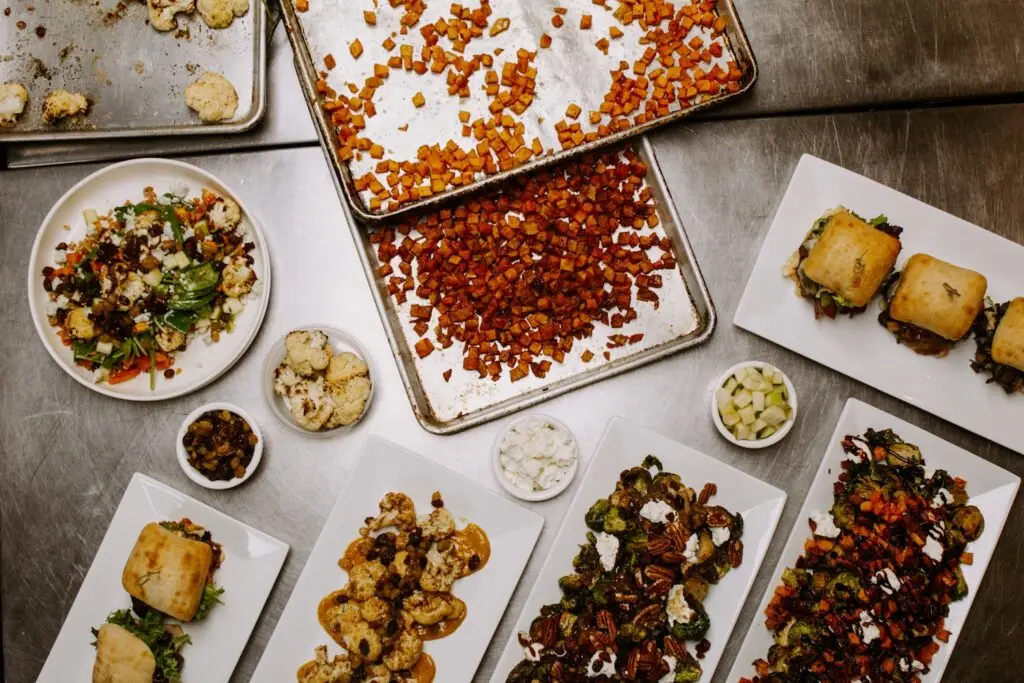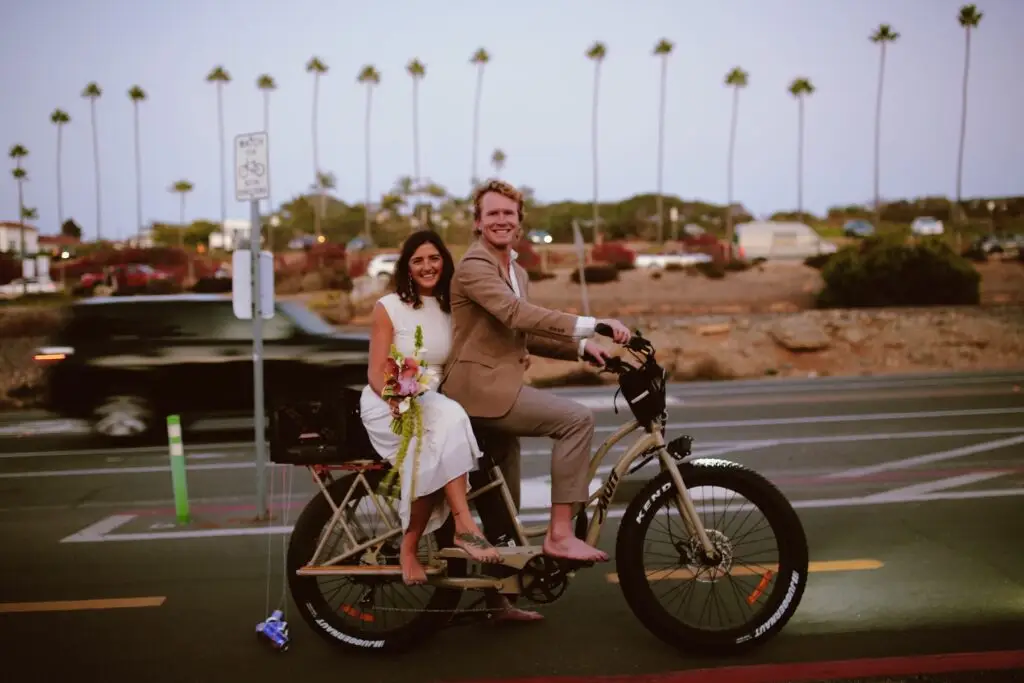“Alex is my husband and Zac is our boyfriend,” says local Jess Parker, who calls his relationship orientation “polyfidelity,” a form of consensual non-monogamy. The 36-year-old met his husband 10 years ago. Twelve months ago, they added a third to their relationship.
Broadly, polyamory is the consensual practice of engaging in multiple romantic relationships—but it takes many forms. Parker and his partners have chosen closed throupledom: All three of them are sexually and romantically involved with each other, and they don’t date outside of their threesome.
“While we believe that love isn’t finite and there’s so much out there, you only have so much time and so much energy that you can give to others,” Parker says. “We kind of joke around that we’re at our bandwidth limit; we don’t have anymore for anyone else.”
Admittedly, I had some preconceived notions about non-monogamy: Is it for people who don’t want to commit? Does it only work if you never get jealous? But during my conversation with Parker, it quickly became clear that everyone in a relationship—monogamous or not—could learn something from the tenets of polyamory.
While the concept of non-monogamy isn’t new, it seems as though, in recent years, attention to—and interest in—polyamory has reached a fever pitch. Slate even went so far as to call it mainstream, citing Peacock’s new show Couple to Throuple as an example of how far we’ve come.
That might be an overstatement—in 2021, researcher Rhonda Balzarini told Psychology Today that “anywhere between 26 to 43 percent of individuals who practice [consensual non-monogamy] report experiences of stigma and discrimination”—but, at the very least, recent data shows a shift in perspective is happening.
According to 2024 stats compiled by SexualAlpha, 31 percent of Millennials consider themselves to be in a non-monogamous relationship. In 2021, Frontiers in Psychology found that one in nine Americans engaged in polyamory at some point in their lifetime
Slate looked at various studies to conclude that “two or three percent of all American adults are, by agreement, not strictly monogamous … [which] works out to millions of people—similar to the prevalence of peanut allergies.”
In February of this year, Ana Kirova, CEO of sex-positive dating app Feeld, told Axios that the pandemic may have driven individuals’ interest in non-monogamy. Lockdowns gave people time to think about their sexual identities and desires, she suggests. And the data backs her up: According to Kirova, Feeld has seen “a 500 [percent] increase over the last three years in the number of app users including the terms ‘ethically non-monogamous’ and ‘polyamorous’ in their profiles.”
But some people, like Parker’s husband, Alex Aragon, have practiced polyamory for much longer. Aragon was in a five-year marriage with a man and a woman before moving to Salt Lake City, Utah, and meeting a then-26-year-old Parker. “I was still a closeted Mormon kid. He made the first move and asked me out,” Parker says. “We ended up dating. He was one of the first major relationships I had, and he helped me come out of the closet.”
Aragon was the first to bring up polyamory. Parker says the concept wasn’t completely foreign to him, since he’d grown up in the Mormon faith, in which polygamy was once common. Three years into their relationship, they started seeing other people and eventually moved to San Diego.
“When the two of us started dating polyamorously, there definitely was messiness. It was a lot harder, just because you don’t know how to react to things,” Parker says. “But as time went on, there were lessons learned; your own boundaries start being understood more.”
Every new relationship involves a learning period, where you’re figuring out how your partner wants to be loved and how that differs from past partners. In polyamory, that’s amplified, and practitioners have more practice than most at letting go of limiting ideas about how relationships can and should look.
“Each individual that came in and dated us was different, and they would each have unique things that we would have to learn with them [and] go through disagreements,” Parker says. “When you have two different people that have different preferences and different love languages … it’s so important to focus sometimes on how your partner needs to be loved rather than how you like to love other people.”
Making it work requires a powerful level of communication and honesty: constant check-ins, early discussions of boundaries, and the willingness to voice desires and fears.
“Some of that wisdom could be applied to every other relationship,” says Dr. Marie Thouin, a dating and relationship coach and expert in non-monogamy. “I think everyone should import some of the wisdom from non-monogamous communities, including compersion—the idea that love is not about controlling one another, but it’s about empowering one another to be our fullest self.”
Successful polyamory involves creating a safe space for everyone involved to explore their boundaries, feelings, and thoughts—including those about safety. In cases where two people are primary partners but have opened their relationship to include others, for example, “They may have an agreement that says, ‘Okay, we don’t wear condoms or barriers with each other, but every time we have sex with someone else, we wear a condom and maybe we get tested every two months,” Dr. Thouin says. Then, they’ll share their results with everyone they’re sleeping with, no matter what.
This stands in stark contrast to the myth that non-monogamous people are uninterested in commitment. In fact, they spend a lot of time cultivating and maintaining the connections in their life and learning other people’s needs.
They’re also not supremely evolved beings who’ve magically removed the jealousy gene. “When jealousy and insecurities come up, the idea is not to eradicate [them], because that’s impossible to do,” Dr. Thouin says. “Non-monogamous people know that. They reassure each other.”
The takeaway for my own monogamous relationship? Communication is key. I want to create a space for my boyfriend to share when he’s feeling insecure or unseen. I also need to work on expressing myself more instead of shutting down—a trait I’ve picked up over the years due to fear of others getting upset with me.
I’ve heard from friends who have used Feeld that it’s refreshing to speak with its members because of how open and upfront they are about their wants, needs, and desires. Better communication right away could ease the process of meeting someone who shares your values and weeding out those who may not be a fit.
What about you? Have you ever explored consensual non-monogamy? Would you? Let me know your thoughts in an email at [email protected].
Lastly, thanks to all who came out for our first singles mixer to celebrate six months of the column. After this week, we’ll be moving to a bi-monthly schedule—catch a new article back here on Friday, September 13.
If you’re new to Unhinged, catch up on all the dating chats you’ve missed here and follow along at @monicles and @sandiegomag on Instagram to know when a new article drops each week.
PARTNER CONTENT
Sign-up now for the Unhinged newsletter for exclusive content, Q&As with Nicolle, and subscriber-only meet-ups!


















